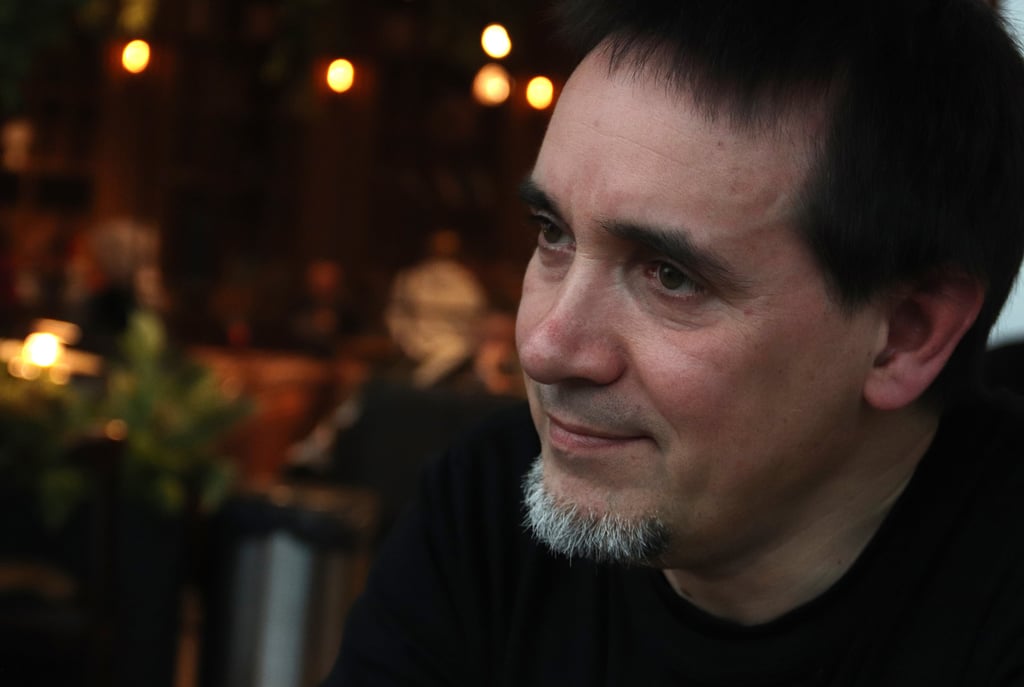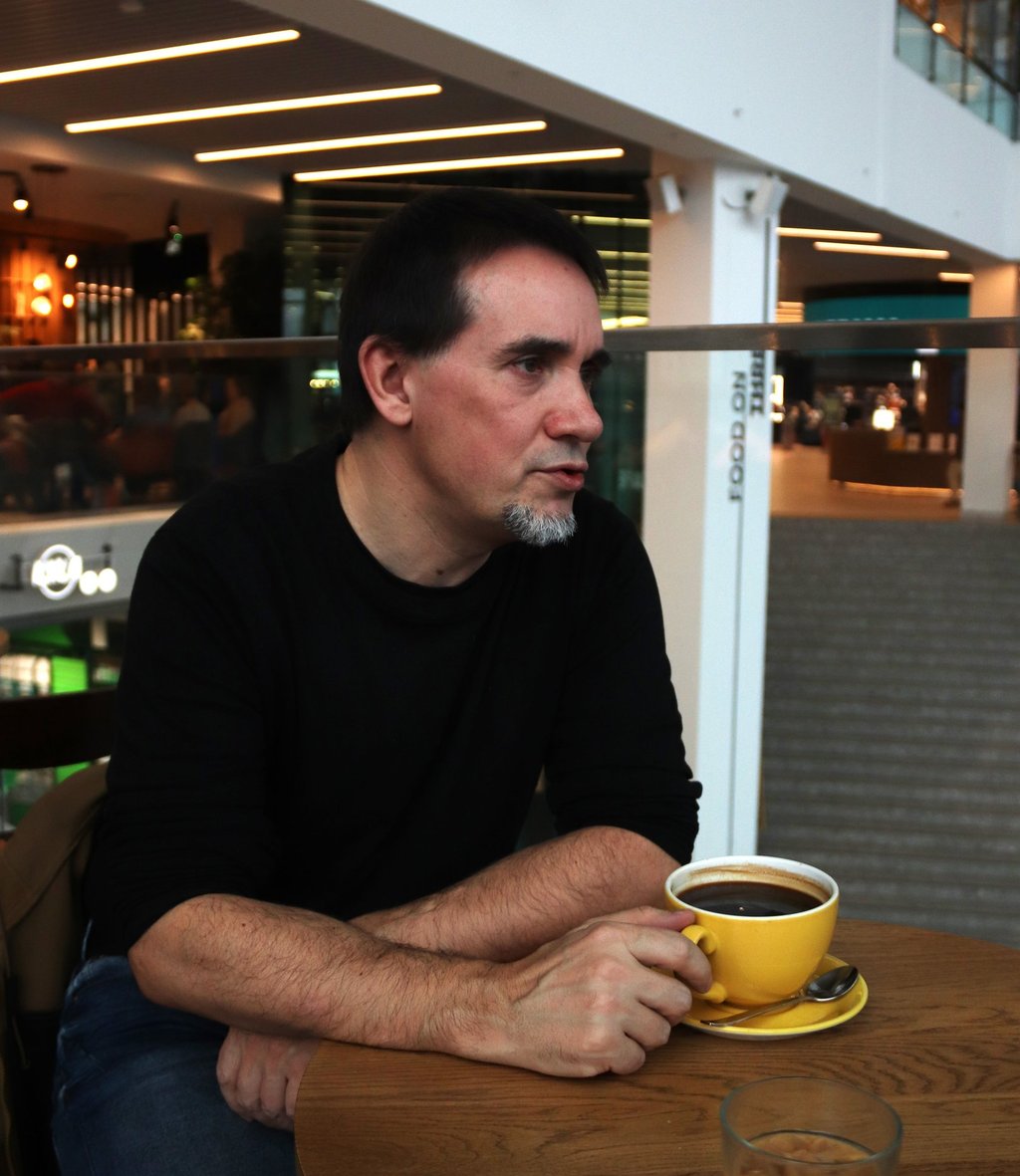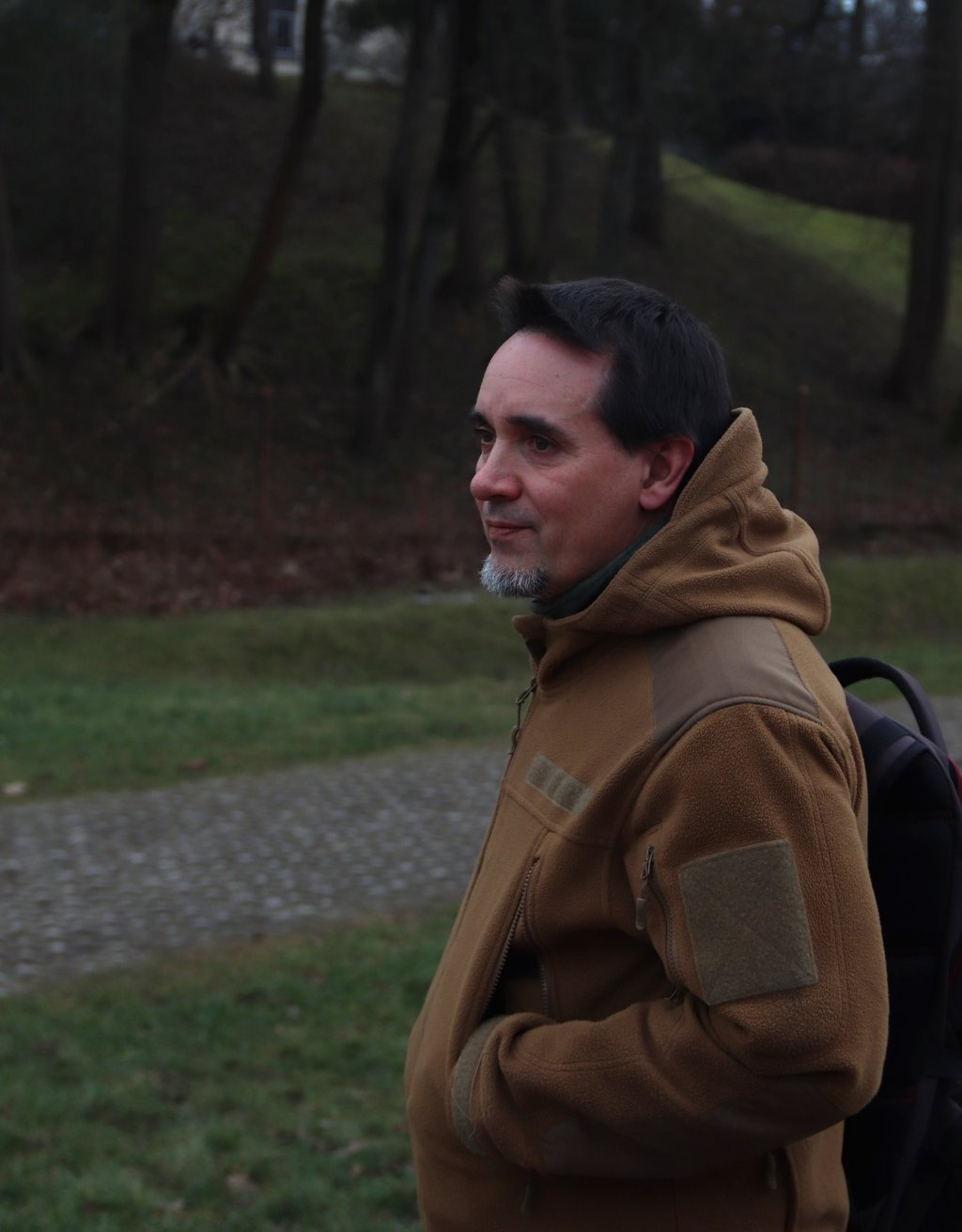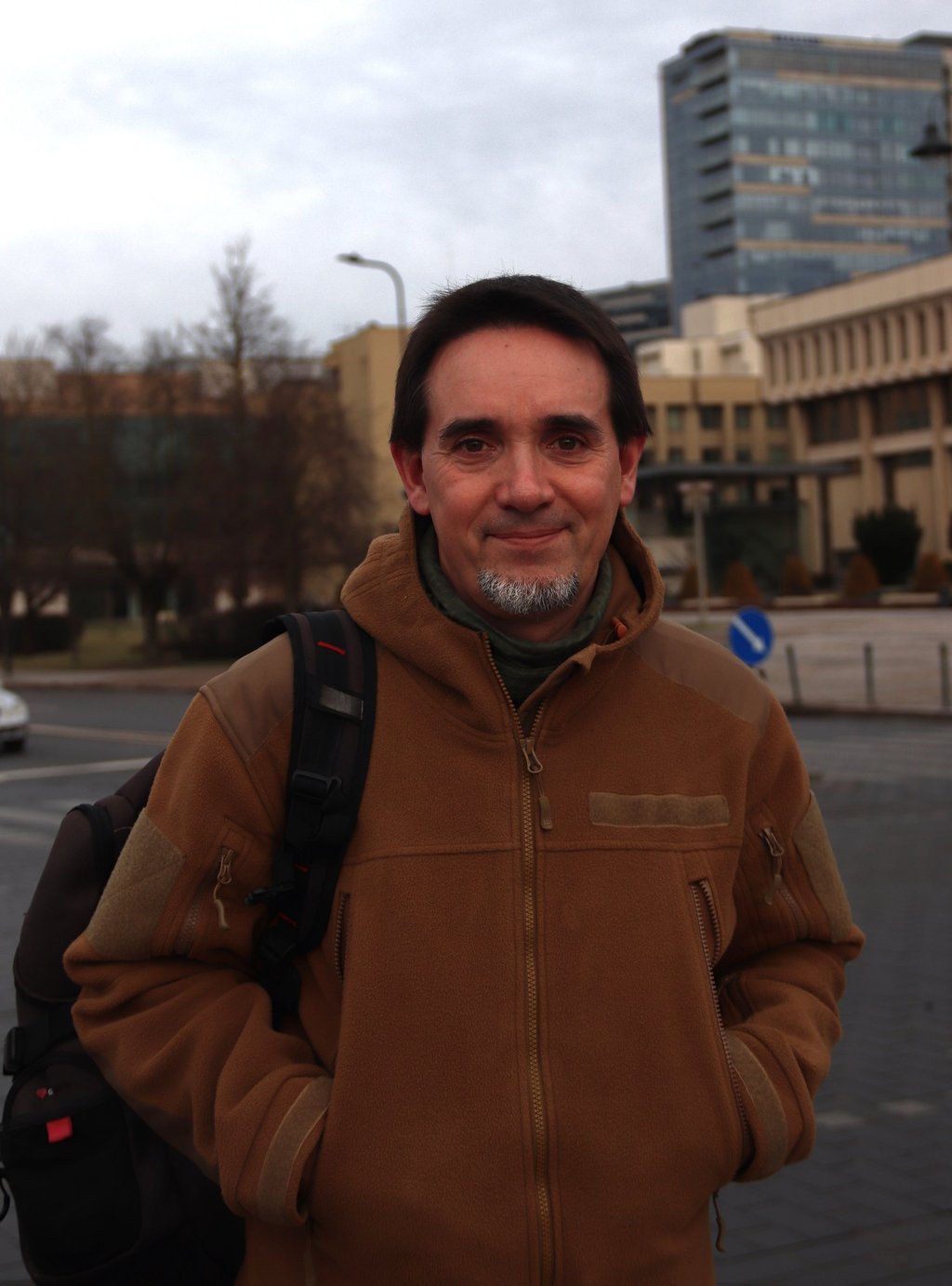Portraits of Members: Tomas Avižinis from "Baltos Lankos Klett" Trade Union
The chairperson of the G1PS branch at "Baltos lankos Klett" publishing house talks about the negotiations to retain the position of proofreader, the establishment of a trade union and voluntary overtime
ENGLISH
2/25/20255 min read


There were problems with the new management from the very beginning, because they have their own corporate structure standards, which they tried to apply in our country. There was quite a big clash there, in that they wanted to abolish the proofreader's position completely and put it under the responsibility of the project managers.
We had to persuade them that our Lithuanian language is important enough and that project managers are not necessarily going to be good editors of the language or of facts. And we did manage to keep those positions separate. They added our post to the overall template corporatist structure. It's a small but significant achievement.
What we got from G1PS is invaluable: when we needed legal advice, a lawyer came, we really felt a strong support, and we got informal advice when we needed that too. It was reassuring to hear the lawyer's advice that we could not be easily dismissed, how many different guarantees we had as union members, and that we could always get help.
The complexity on our side is that not everybody wants to be on the board, not everybody is able to commit the time, and when the union was set up some workers were afraid that you would become some kind of enemy, a disliked, uncomfortable worker. So the employer only knows our total number and the members of the board, they don't know anything about the others.
At the beginning, the aim was to protect ourselves, so we have achieved some of that security, and we do get some feedback from the manager. Current goals: to attract as many new members as possible from different chapters and to see what things we can agree on with the managers. For example, I know more about layout, about production, about the specifics of these jobs, but I may not know what is important or what difficulties other departments have. The other departments in the company are quite a large group of project managers, as well as the marketing and web departments.
We asked for a list of achievements from the Communication Workers' Union, what they have achieved. We will try to present it here, to see what we can bargain on, what is not negotiable. We might be able to achieve things that seem small but are motivating: more days off, or more flexible working hours. Anything that would show workers that they are valued, that their well-being and fatigue are taken into account.


I've been working as a publication designer for 20 years. During this time, I have had the opportunity to layout a wide range of publications. In the beginning, it was newspapers: Respublika, Vilniaus diena. Later, I designed magazines such as IQ, Namas ir aš ("House and I"), and I have also contributed to other occasional publications such as Kur studijuoti? "Where to Study?", Verslas.Lyderiai ("Business.Leaders"). Now I have been designing textbooks for a couple of years.
A year and a half ago, we had a change of management at Baltos Lankos. The Lithuanian owners sold the company to the German publishing group Klett, which has branches in maybe ten European countries. One day the bosses came and said: "We've sold you".
The new owners hired a new manager, who immediately started to do a staff shake-up. We were worried about our jobs and about our colleagues. Moreover, the manager had previously worked in other areas outside publishing. Of course, she assured the staff that she was a fast learner, but nevertheless, in publishing, as in every other field, there are quite specific things that a newcomer cannot know, and so new solutions sometimes seemed to have been plucked out of thin air. That's when our team reached out to you.
We thought that a union could be a safety net for us, a hedge against management making some unilateral decisions. In the past, decisions were made locally, you could go and negotiate at any time, talk to management as friends. Informal conversations were enough to get things done.
The new manager seems to have made her first decisions without consulting or informing the staff. She uses the excuse that decisions are supposedly taken higher up, abroad, and that it is even harder to talk them down. We are told: "You put pressure on me, and they put pressure on me from above".
When the union was set up, it seems to have come as a surprise to the foreign leadership, we were labelled almost as "communists". At one point it was as if we had become enemies, but as we talked further it turned out that it was not so bad. Our strategy has also become to present our trade union presence as an aid to the management: we help them to ensure that the workers are in good psychological condition. To make the workers more motivated, to listen to their needs and try to find common solutions. This has calmed things down a bit, although there is still no great sense of friendship.


The nature of my work is a balancing act between creativity and conveyor belt work. Creativity is about creating an aesthetic, eye-catching and reader-friendly layout from text and individual illustrations. Conveyor work is about "stamping out" dozens of such pages, and quickly enough. The work cycle, from blank page to final layout, is also different. In a newspaper, you have to produce the whole publication in a day. For a magazine or a book, it's longer, and can take a month or more. Another stage of the work is the correction of proofreading errors in the layout, which also requires a great deal of attention and concentration.
Authors tend to delay and they do not always meet deadlines. Editing the text also might take longer than planned, so it can happen that only 2-3 weeks are left for layout.
Then you have to rush. 20, 30, sometimes more pages a day. The most I've done is 110 pages in two days (50 pages in one day, 60 pages in the other).
Unfortunately, in such a rush, mistakes happen. Therefore, in order to produce a quality publication, it is necessary to proofread not once, but twice or thrice. There is a conflict with the management, who don't always understand why it takes so long to prepare the layout and insist on finishing it before we can. At one meeting we asked if the staff would get a bonus at the end of the year, but were immediately told that the plan had not been fulfilled because we had not completed all the publications on time.
They are already taking away a publication and we are like, "No no no, we'll better read it overnight, but we'll try to pick up as many of the errors as we can". My conscience does not allow me to give away a mediocre product, I want a good one. But we keep telling each other not to work overnight, to rest, not to work for free.
There was a time when I was working in the evening and at 01:02 I sent an email to a colleague, thinking that she would open it and read it in the morning. Two minutes later I get a reply: "Oh, thanks, I'll read it right now".



